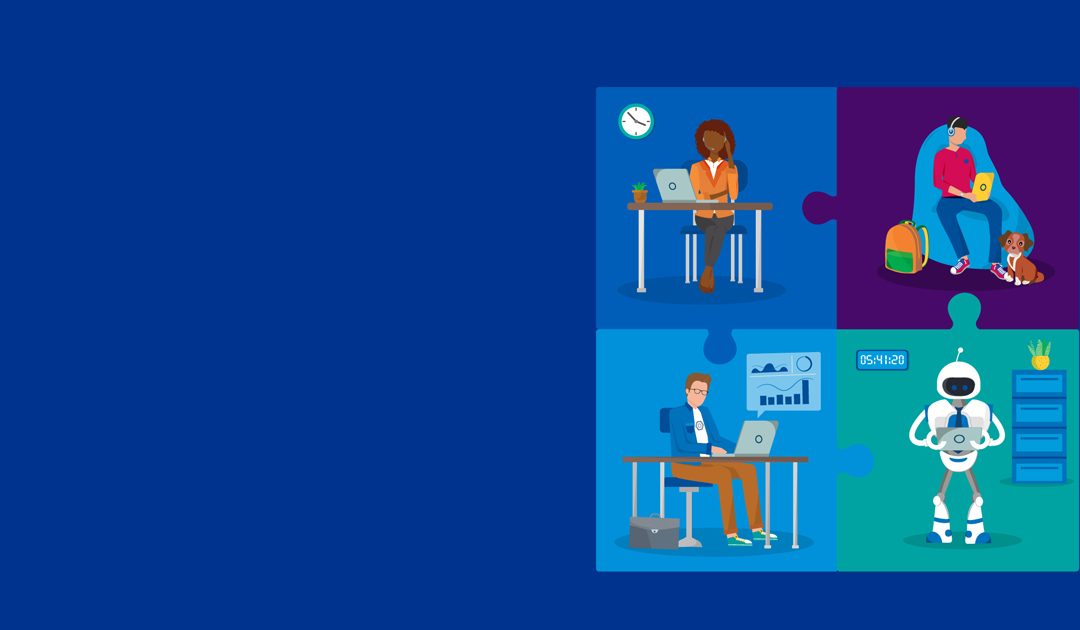Post COVID-19, our world is certainly going to be different from what it was in the past. In some aspects, we may go back to our old habits, but in certain areas a new normal is going to set in. Remote working, for example, is certainly going to stay; various organisations will adopt this variously and hence, practice differently. However, remote working is no more going to be the exception. The city-dwellers now know that pollution can be reduced; people have now realised how important it is to care for the community we live in. And many such developments are going to impact an organisation’s strategies concerning human resources.
Flexibility all the way
Businesses declined to an unforeseen low and experienced uncertainty like never before. For most businesses, nobody knows when the consumer demand will be back to normal levels. Organisations are reviewing their plans and taking steps, some reactive and some proactive that they think are going to help them in the short term, as short as a time period of days and weeks. It is the instinct of survival that is keeping them afloat. Naturally, flexibility is the most valued trait right now.
Going forward, most progressive organisations will emphasise on staying nimble and agile so that they can sense the upcoming changes in their environment quickly and take appropriate actions earlier than their peers.
HR teams have to start with an alignment with the business leaders in identifying the roles that are critical to the organisation’s strategic imperatives. Every other role must be staffed with contingent workers, part-timers and gig workers. Rather than going by the traditions, one has to inject flexibility in the structure itself. And similarly, in all other aspects of HCM (human capital management) such as learning and development, succession planning, performance management and HR operations, we need similar flexibility by design.
Operationalise the design
Designing a flexible system is not enough. We can take the help of experienced experts to get a good design in place. However, the real challenge is in operationalising the design.
In the future, our workforce demographics is going to change. On any day of work, we will see a significant rise in the number of people working remotely. The work hours are not going to be limited to specific time windows of the day, rather many of our people would work at any time of the day and the week based on their convenience. Our policies need change; they need to be understood and administered well.
The way work is delegated and measured today will undergo a sea change. In many organisations, HR will need to redesign workflows so that we have adequate flexibility to let workers plug in and out the workflow easily. And the KPIs (key performance indicators) would need a review and redefinition so that the right indicators are being focused upon. Accordingly, high performers are to be recognised and rewarded.
Competencies that worked in the past for us must be reviewed in the world of the new normal. We need our people to demonstrate agility, collaboration, innovative approach, comfort with the technology tools, self-drive and many such. Each organisation needs to pick the winning competences which could be somewhat different from what they were in the past; we have to weave them into our selection process while we are acquiring new talent. We have to define the desired behaviours and institutionalise them in the organisation by embedding those in our talent management processes. It’s a lot of work!
What about the culture?
Do we need a change in our culture as a result of the uncertainties and the sharp fall in market demand brought onto us by COVID-19?
Culture for an organisation is like the immunity that a human has against the onset of a predatory antigen. Leaders establish those norms subconsciously through their behaviours towards employees, customers, vendors, business partners, society and every other stakeholder in the society. COVID-19 has surely brought about seminal changes to our way of doing business. However, these changes aren’t at the level that one needs to change one’s fundamental beliefs towards the stakeholders of the business. A few adjustments may be required, though!
For example, an organisation which promotes long term thinking could find it hard to make frequent changes in their plans for the short term. Using technology to hold meetings, share information among one another and work collaboratively on projects is new to many organisations. This calls for the entire organisation to accept the fact that work has to be done differently and hence, investments are required to acquire new technology tools, train people on using them and implementing the change on the ground. These changes are painful, yet have to be carried out because that’s required for survival.
We are about to take off, let’s get these done soon!


